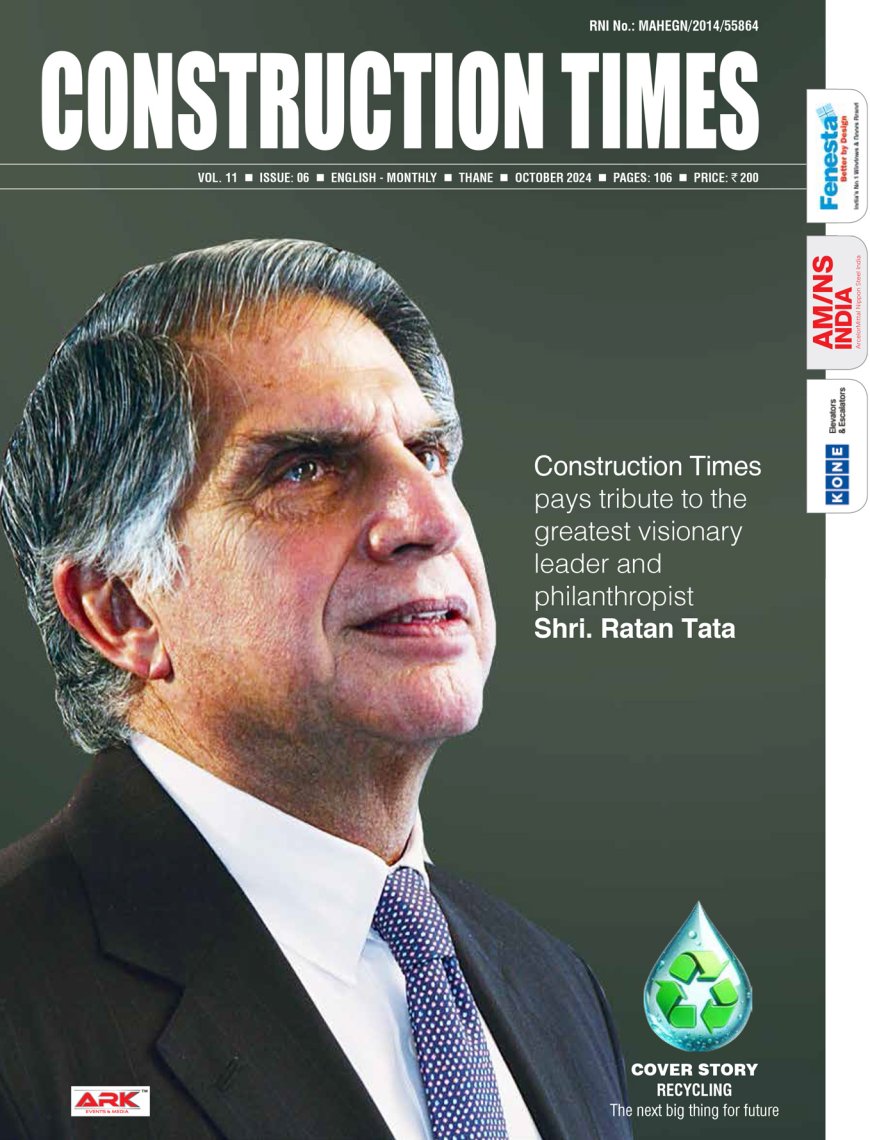Phase-I of Mumbai Coastal Road is going to be toll-free'
Dr. Vishal Ramesh Thombare, Engineer, Coastal Roads Department, Municipal Corporation of Greater Mumbai, throws light on the lesser known aspects of the Mumbai Costal Road that will skirt about 70 per cent of the length of the city's western coastline The work on Mumbai Coastal Road project-from Nariman Point to Kandivali that would stretch 35.6-km

Dr. Vishal Ramesh Thombare, Engineer, Coastal Roads Department, Municipal Corporation of Greater Mumbai, throws light on the lesser known aspects of the Mumbai Costal Road that will skirt about 70 per cent of the length of the city's western coastline
The work on Mumbai Coastal Road project-from Nariman Point to Kandivali that would stretch 35.6-km from end-to-end to decongest traffic- commenced with the formation of a joint technical committee in 2011. As per the feasibility reports, an international consultant was appointed as detailed project reports (DPR) consultant who submitted a report for the length of 29.2 km in Mumbai from the Princess Street flyover up to Kandivali, which would comprise roads on reclaimed area, bridges, and underground tunnels that will be approximately 12 meters in diameter. “There will be two tunnels. One will move towards North Mumbai and the other will come towards South Mumbai. There will be four interchanges at different locations, along with footover-bridges for pedestrians,” says Dr. Vishal Ramesh Thombare, Engineer, Coastal Roads Department, Municipal Corporation of Greater Mumbai (MCGM).
Of the seven alignments suggested by the DPR consultants, MCGM has chosen the one that starts from Princess Street flyover and ends in Kandivali, informs Thombare. “The Phase-I ends at Bandra, while the Phase-II starts from Bandra and ends at Kandivali. This is the alignment one. We will be reclaiming near about 9.20 hectares of land from the sea in package one, which starts from Princess Street flyover up to Priyadarshini Park. This is just a cemented section of Marine Drive,” he says.
Further, he adds that they have already completed the tendering process and a contractor has been selected for the first package. “We have three packages. For package one, we have L&T. For package two, we have SCC in JV with HCC. For package four, we have L&T again. We had already issued LOI to these contractors and they had already started preliminary mobilisation and set up site offices. We have obtained 18 NOCs from various government bodies including the Maharashtra Coastal Zone Management Authority, Maharashtra Maritime Board, Coast Guard and total we have 18 NOCs. So we had already started our work. The duration of this project is four years and we expect to finish the road well before the delivery deadline,” he says.
The estimated cost for this project is about Rs 15,000 crore, which is from Princess Street flyover up to Kandivali . The total cost of 9.98 kilometre of Phase-I of the project is around Rs 8,600 crore. “We have conducted extensive studies including the impact on roadside streets, existing trees, religious heritage structures in the context of sea view, tides and natural drainage patterns. Eighty to 90 percent of the times, we will be using local materials available in and around Mumbai. We have paid particular care to road safety during construction and also put safety measures in place in other areas in minute details with the effect of climatic changes based on predicated sea levels. We will be needing 74 lakhs of cubic metres of material of which 5 lakh cubic metres will be concrete,” he says.
The Mumbai Coastal Road project addresses the challenges of solving traffic woes of optimising land use, protecting heritage sites and creating new architecture in the city. The project connects the iconic structure between Marine Drive in the South to Kandivali in the north, comprising various tunnels, reclaimed land, road, sites and bridges with various interchanges. The reclaimed land will serve a vital public recreation spaces for citizens with over 70 hectares of the reclaimed 90 hectares being given to green open spaces and on 20 hectares there will be roads, bridges and interchanges.
Benefits of the Mumbai Coastal Road project
There will be time-saving of around about 70-75%. Normally, the travel time from Marine Drive to Worli, takes up to one hour depending upon the traffic condition. However, after the completion of this project it will be reduced to mere 12 minutes, which was result in fuel-saving to up to 34%, thereby reducing the carbon footprint. Decongestion in traffic due to seamless coastal road travel will be possible because there will not be any signals on the entire stretch. There will also be a dedicated lane for Bus Rapid Transit System (BRTS) and a dedicated land for ambulances measuring 2.75 meter. “We are ensuring coastal erosion protection by providing sea vaults and protection against storms, and floods. The project offers direct or indirect employment to about 1 lakh people during and after construction of the project. Strategically located bridges allow uninterrupted passage of boats to protect livelihood of our fishermen. Mumbai Coastal Road project ensures the best ride comfort with enhanced overall road safety bolstered with surveillance systems. It also helps remote areas of Mumbai connect thus enabling trade and transport. The Phase-I of the project for 9.98km will be a toll-free,” he says.
Hits: 287















